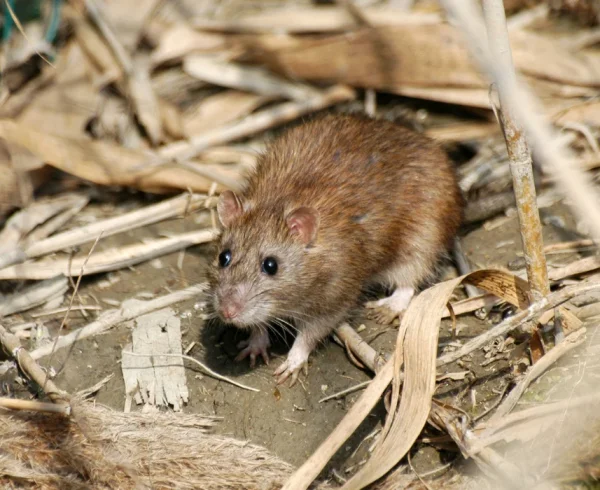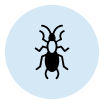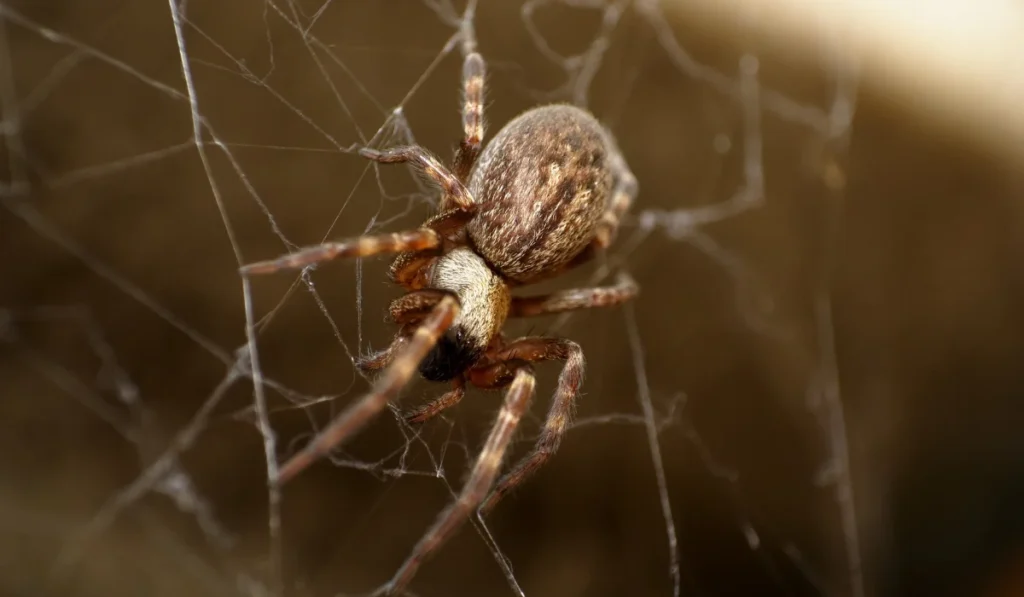California is home to several species of mice, each with its unique characteristics, habitats, and challenges for homeowners. Understanding the types of mice common to California and how to address infestations is essential for effective pest control.
Below, we cover the most notable mouse species in the region and offer tips on how to manage and prevent infestations.
Key Takeaways
- California mice species include house mice, deer mice, California mice, dusky-footed woodrats, and western harvest mice.
- Droppings, gnaw marks, nests, noises, and tracks are common signs of a mouse infestation in homes.
- Controlling mice involves sealing entry points, keeping spaces clean, setting traps, and removing nesting materials.
- Pest control professionals offer comprehensive solutions to remove mice and keep them from coming back.
Common Types of Mice in California
House Mouse
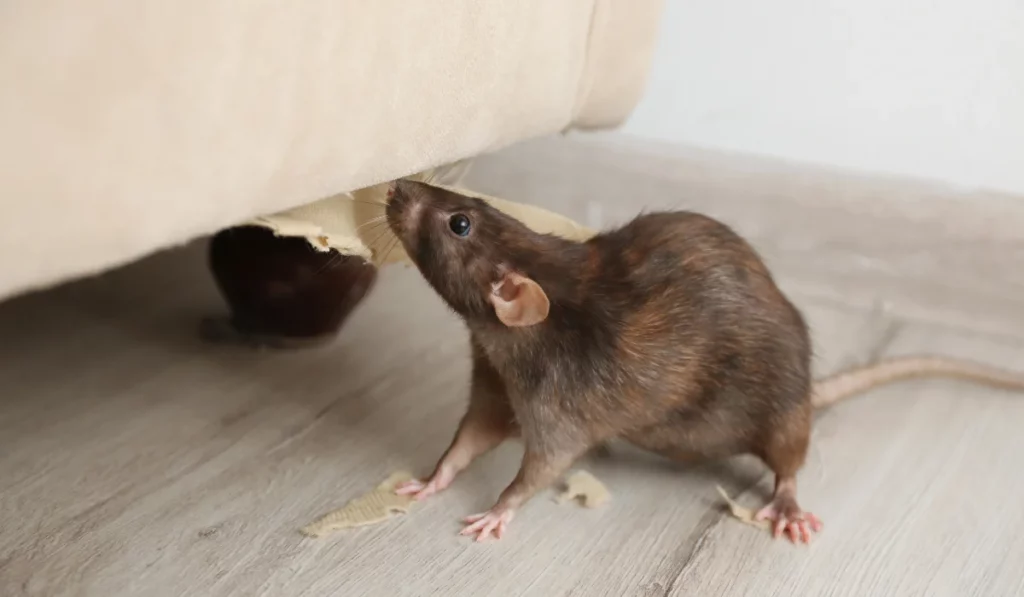
The house mouse is a small rodent with grayish-brown fur, long tails, and slightly pointed noses. These mice are commonly found in urban and suburban areas, where they inhabit basements, attics, and walls.
They are skilled climbers that adapt well to human environments, reproduce quickly, and are active year-round.
Deer Mouse
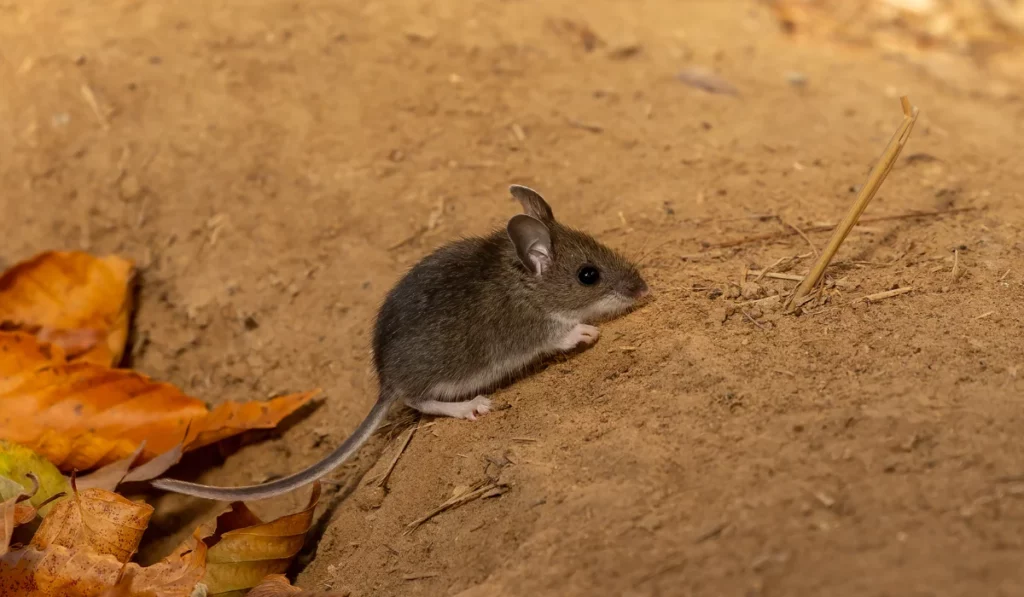
The deer mouse is easily recognized by its white belly, large eyes, and brownish-gray back. These mice are typically found in rural and wooded areas, barns, and garages.
While they may appear harmless, deer mice are known carriers of hantavirus, a serious respiratory disease that can pose significant health risks.
California Mouse
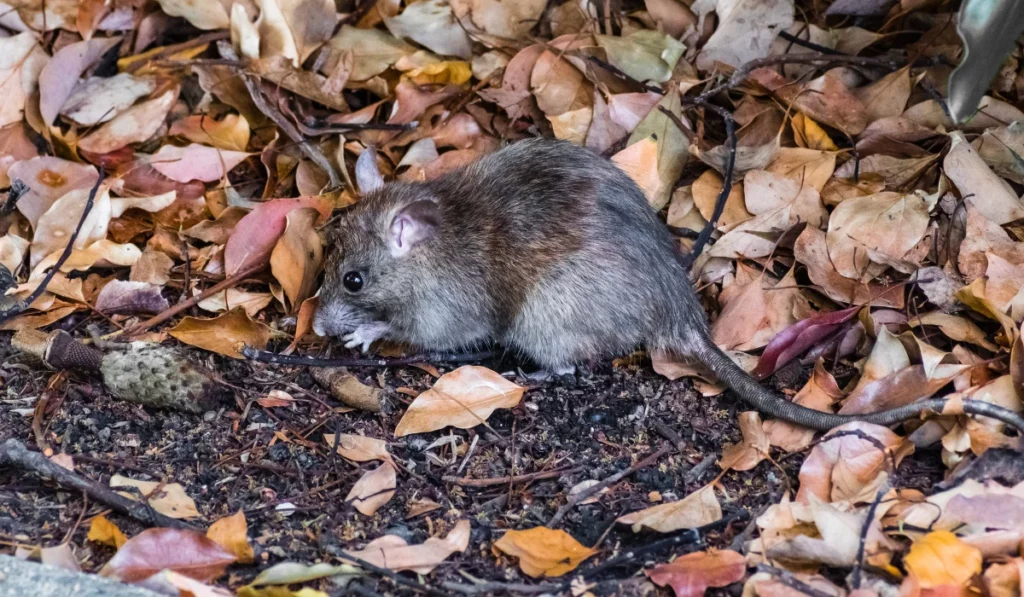
Slightly larger than the deer mouse, the California mouse shares similar characteristics, such as a white belly and brownish-gray fur. These mice are primarily found in Southern California and Mexico, often in wooded or shrubby regions.
Dusky-Footed Woodrat
The dusky-footed woodrat features grayish-brown fur and a slightly bushy tail. It prefers wooded habitats, where it is known for building intricate nests. These herbivores forage for seeds, leaves, and nuts.
Western Harvest Mouse
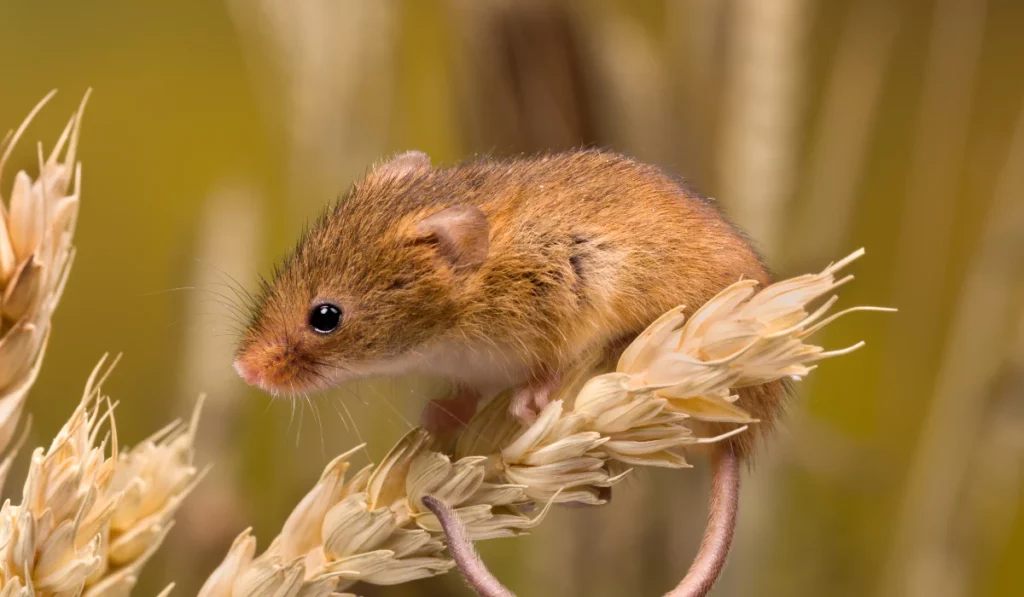
Western harvest mice are small rodents with fine fur and long tails. These are typically found in open fields, meadows, and grasslands, where they thrive in natural settings away from homes.
Pocket Mouse
Pocket mice are small, tan, or brown rodents notable for their fur-lined cheek pouches used for storing food. They inhabit arid and desert-like areas, making them well-adapted to dry environments common in parts of California.
Signs of a Mouse Infestation
Mice leave behind clear evidence of their presence that’s easy to spot if you know what to look for. Here are the most common signs of a mouse infestation you shouldn’t ignore:
- Droppings: Small, dark pellets near food sources or in hidden corners.
- Gnaw Marks: Chewed wires, furniture, or food packaging.
- Tracks: Footprints or tail marks in dusty areas.
- Noises: Scratching or squeaking sounds, especially at night.
- Nests: Shredded paper, fabric, or insulation used to build nests in hidden areas.
How to Get Rid of Mice in California
Seal Entry Points
Mice can squeeze through holes as small as a dime. Inspect your home for gaps around doors, windows, vents, and pipes. Use steel wool, caulk, or metal mesh to block these openings.
Maintain Cleanliness
Keeping your home clean and tidy is one of the best ways to deter mice. Follow these simple steps to reduce attractants:
- Store food in airtight containers.
- Regularly clean crumbs and spills.
- Dispose of garbage daily in secure bins.
Use Mouse Traps
Snap traps are a quick and effective way to catch mice, making them ideal for immediate results.
Bait stations are another reliable option, especially for larger infestations, but they must be placed carefully to ensure the safety of pets and children.
Remove Attractants
Eliminating potential nesting sites and water sources is key to preventing a mouse infestation. Take these steps to make your home less inviting for the small mammals:
- Remove clutter that provides nesting material.
- Fix leaky pipes and eliminate standing water.
Professional Pest Control Services
When infestations persist, calling a pest control professional is the best way to ensure comprehensive removal and prevention. At Simple Pest Management, we offer tailored rodent control services, including inspection, exclusion, and sanitation.
How to Prevent Mice from Returning
Keep mice out of your home with these preventative steps:
- Trim vegetation and tree branches near your home’s exterior to reduce climbing access.
- Regularly inspect your property for signs of mouse activity.
- Install weatherstripping on doors and windows to reduce gaps.
- Consider regular pest control treatments to maintain a mouse-free environment.
Is It Time to Call a Professional?
Mice are more than a nuisance; they can pose serious health risks and cause significant property damage. From spreading diseases like hantavirus to chewing through wires and insulation, their presence should never be ignored.
Need help with a mouse problem in California? Contact Simple Pest Management today for fast, effective solutions!



